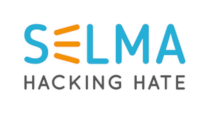 Hate speech on the Internet is an increasing, societal problem. According to a recent study, nearly 80% of Internet users have ever seen hate speech or hate comments on the Internet, while younger Internet users (14-24 years) even see it as 96% (Source: Landesanstalt für Medien NRW, 2018). To complement existing initiatives to regulate, monitor or report on online hate speech, the EU’s SELMA project (Social and Emotional Learning for Mutual Awareness) takes a pro-active approach: the two-year project aims to tackle online hate speech by promoting mutual understanding, tolerance and respect.
Hate speech on the Internet is an increasing, societal problem. According to a recent study, nearly 80% of Internet users have ever seen hate speech or hate comments on the Internet, while younger Internet users (14-24 years) even see it as 96% (Source: Landesanstalt für Medien NRW, 2018). To complement existing initiatives to regulate, monitor or report on online hate speech, the EU’s SELMA project (Social and Emotional Learning for Mutual Awareness) takes a pro-active approach: the two-year project aims to tackle online hate speech by promoting mutual understanding, tolerance and respect.
The SELMA project addresses the issue of ‘hate speech on the internet’ in an interdisciplinary way with a holistic approach involving teachers, pupils and their peers, parents and other multipliers from education, politics (ministries of education), internet economy and civil society in the View takes. The aim of the project is to promote mutual understanding, tolerance and respect in school and extracurricular education.
Project activities include empirical research on hate speech, the joint development of a SELMA toolkit for school and extracurricular employment, including testing and national adaptations, and the dissemination of project outcomes. The project aims to reach adolescents aged 11 to 16, education disseminators, as well as parents and other interested parties. With the SELMA measures, the awareness or knowledge and understanding of the phenomenon of hate speech and how to act against it should be increased.
German partner in the SELMA consortium is the LMK, coordinator of the EU initiative klicksafe. The project is funded by the Rights, Equality and Citizenship Program (2014-2020) of the European Union. More information about the project can be found at: www.hackinghate.eu

